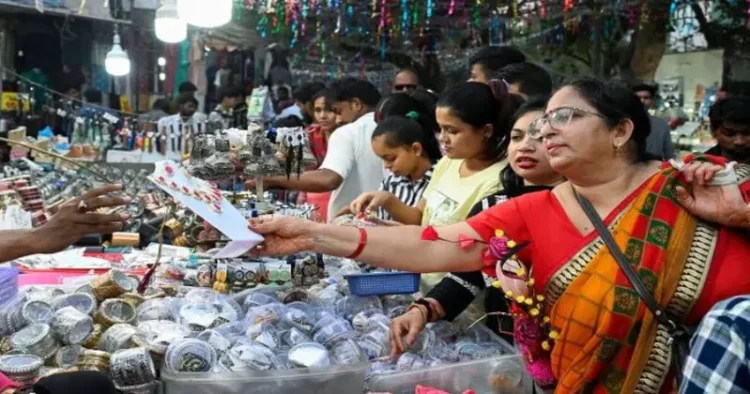As the festive season continues with Goverdhan Pooja, Bhaiya Dooj, Chhath Pooja, and Tulsi Vivah still ahead, an additional trade worth Rs 50 thousand crores is anticipated. The surge in local trade underscores the growing support for indigenous products and highlights the economic impact of prioritising local businesses. The unprecedented success of the Deepawali trade is indicative of a paradigm shift in consumer preferences, with a clear preference for homegrown goods.
A significant element of this festive season was the overwhelming reliance on Indian-made products, replacing the previous stronghold of Chinese goods. In a joint statement, CAIT’s National President, BC Bhartia, and Secretary General, Praveen Khandelwal, said, “Chinese goods lost a trade of worth more than 1 lakh crore. In previous years, Chinese products occupied nearly 70 per cent market of Diwali festivals. However, this year, the appeal of Prime Minister Narendra Modi to make this Diwali vocal for locals has gone down well and is widely accepted and implemented by both traders and consumers.
In this context, the CAIT campaign “Bhartiya Utpad-Sabka Ustad” received wide support from consumers”.
Of the total trade value, approximately 13 per cent contributed to food and grocery items, 9 per cent to jewellery, 12 per cent to textiles and garments, and smaller percentages were distributed among various categories including dry fruits, sweets, home decor, electronics, mobiles, and utensils.
The remaining 20 per cent comprised expenditures on automobiles, hardware, electricals, toys, and an array of other goods and services, significantly boosting the packing sector’s business during the festive period.
Bhartia and Khandelwal emphasised the visible impact of Prime Minister Narendra Modi’s encouragement to invest in One District One Product (ODOP) and locally made goods.
This call had a profound effect across the country, benefiting local manufacturers, artisans, and artists in even the remotest corners, demonstrating a striking picture of self-reliant India domestically and globally.




















Comments